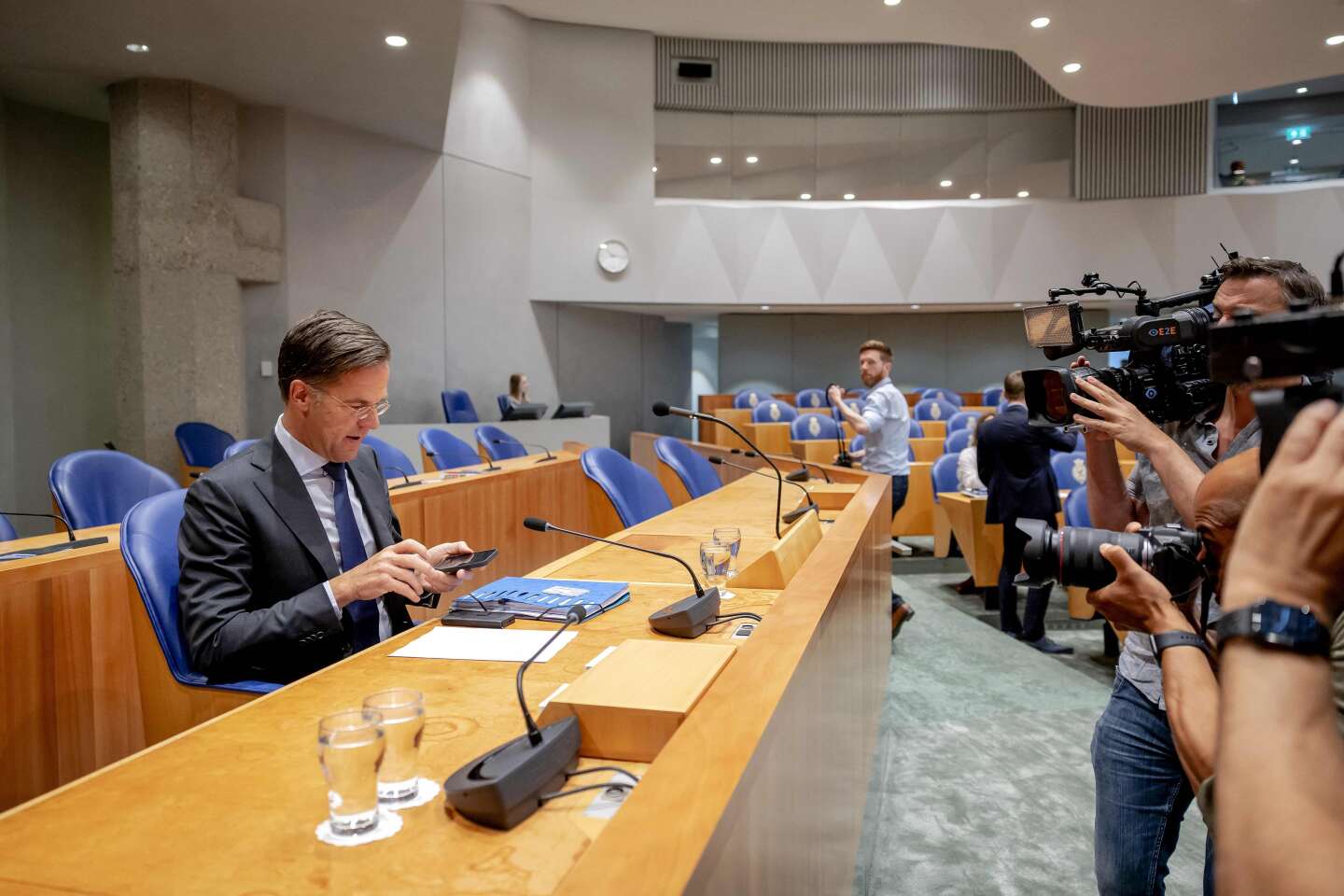


A relaxed-looking Mark Rutte, with one eye at all times on his phone, appeared before Dutch MPs on Tuesday, December 12, for a session designed to determine his negotiating mandate ahead of the European summit to be held on Thursday and Friday. The procedure is in keeping with Dutch parliamentary tradition, whereby in the absence of a new coalition, the outgoing prime minister, who was defeated at the polls on November 22, will represent his country in Brussels. After a lengthy debate – focusing mainly on the country's position on the Israel-Hamas conflict – a position on Ukraine was reached. Kyiv will continue to receive financial, diplomatic and humanitarian support from the Netherlands.
The aim of the talks was to determine Rutte's position at the summit that begins Thursday and which left-wing MP Kati Piri predicted would end in "a total fiasco." The debates were held in a particularly political context, given that the prime minister's party, the People's Party for Freedom and Democracy (VVD), and its three generally pro-European allies, lost the upper hand in the November elections. Their defeat has mainly benefited two Europhobic parties, Geert Wilders' Party for Freedom and the Farmer-Citizen Movement, as well as one other Eurosceptic party, the New Social Contract (NSC), led by the reformist Pieter Omtzigt. These three parties are currently discussing the formation of a possible majority with the VVD.
Favoring continued support for Kyiv, a majority of MPs also approved the opening of negotiations on Ukraine and Moldova joining the European Union, insisting on strict compliance with the criteria set, including the fight against corruption. The parties of the outgoing majority, together with the socialist and environmentalist opposition and the NSC, voted in favor.
Lengthy, tricky negotiations
Caspar Veldkamp, an NSC lawmaker and former diplomat, argued that the Netherlands should negotiate opt-outs on immigration. His support for Ukraine illustrated the differences between his party and Wilders, his potential partner in government. For his part, Emiel Van Dijk, MP for the Party for Freedom, spoke out against the opening of accession negotiations and against any enlargement. He also opposed the idea of further financial aid to Ukraine. The far-right party also wants the country to regain sole control over immigration, with a total closure of its borders.
As for the Farmer-Citizen Movement, another potential partner in any future coalition, it is putting forward a somewhat confused argument that boils down to a plea for "better functioning" of the EU. During the election campaign, Caroline van der Plas's party called for opt-outs on immigration and agriculture.
You have 20% of this article left to read. The rest is for subscribers only.
